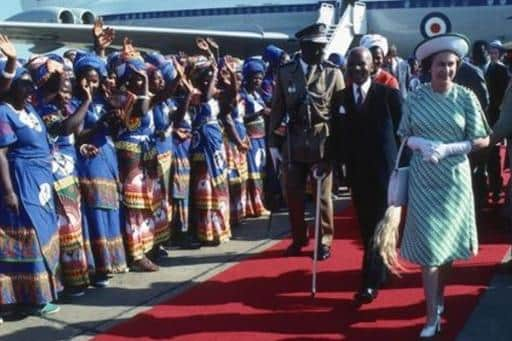Mourning a champion of the Commonwealth - David Hope-Jones
It’s important not to forget the very genuine warmth and affection held for Her Majesty internationally and the tone she set on the international stage. This tone, and the values behind it, can be seen today in many areas, including in the UK’s relationship with Malawi.
Queen Elizabeth II endlessly championed a Commonwealth of Nations underpinned by dignity, friendship and shared humanity. For seventy years she played a crucial role supporting international cooperation, helping to bring diverse nations together for the collective good.
Advertisement
Hide AdAdvertisement
Hide AdShe was briefly also Queen of Malawi, from 1964-66, when Malawi was an independent sovereign state and a constitutional monarchy within the Commonwealth of Nations.


It would be easy for HM the Queen to have retained an implicitly imperial tone to her engagements and interactions with those nations once part of the British empire. This was not the case.
The Queen was adamant that even the smallest nations, through the Commonwealth, should have a voice and a vote: she ensured everyone was treated with the same dignity and respect. This can be seen at each of the Commonwealth Heads of Government Meetings (CHOGMs), where the matters of the day are discussed within and between this family of nations, with respectful dialogue, debate and (as in all families) at times disagreement.
Queen Elizabeth visited Malawi in July 1979, as part of a royal tour coinciding with the CHOGM being held in Lusaka. The aim of the tour was to, with the United Nations, support peace and justice in Southern Africa and to play an active part in the development and strengthening of the Commonwealth by promoting successful co-operation between countries, for the benefit of all.
The Commonwealth is not perfect, but it’s important to remember just how progressive and forward-looking its values have been.
The Commonwealth Charter sets itself out as: “A voluntary association of independent and equal sovereign states, each responsible for its own policies, consulting and co-operating in the common interests of our peoples and in the promotion of international understanding and world peace, and influencing international society to the benefit of all through the pursuit of common principles and values”.
It is an institution committed to diversity, inclusion, concern for the vulnerable, human rights, practical cooperation and respect for all. Given the unique challenges we face today, this is perhaps more relevant, and required, now than ever before.
Too often countries, most especially richer countries like the UK, see international relations as the art of getting other nations to do what we want them to, whether through power or persuasion. This is why institutions like the Commonwealth are so valuable and why the Queen’s long commitment to the principles of respectful exchange, cooperation and partnership, are so important.
Advertisement
Hide AdAdvertisement
Hide AdSince the Queen’s passing, I have received a number of messages from friends in Malawi, from Cabinet Ministers to school teachers, passing their condolences. There is a real sense of sadness at the loss but also a renewed appreciation of the vision and values which underpinned the Queen’s leadership of the Commonwealth. We should not forget this and we must not lose this.
As my friends in Malawi have said, “Mzimu wao uwuse mumtendere” (May her soul rest in peace).
David Hope-Jones, CEO, Scotland-Malawi Partnership
Comments
Want to join the conversation? Please or to comment on this article.